Karma
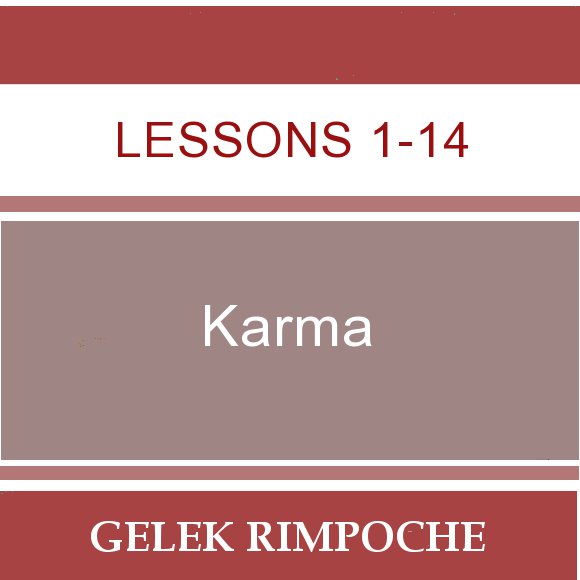
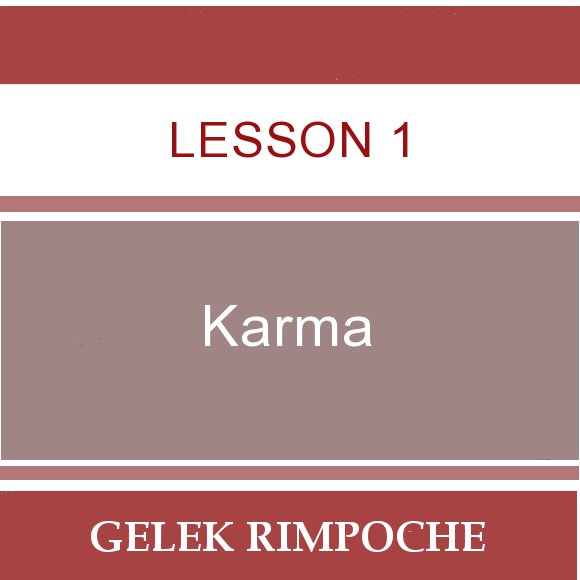
Karma Lesson 1
Lesson Number 1 of 14
Understanding the karmic system is an essential element of Buddhist study and practice. Karma is the root of all happiness and joy, and also the root of all difficulties. In this lesson, Gelek Rimpoche discusses karma as the effects that are created by our actions and our speech.
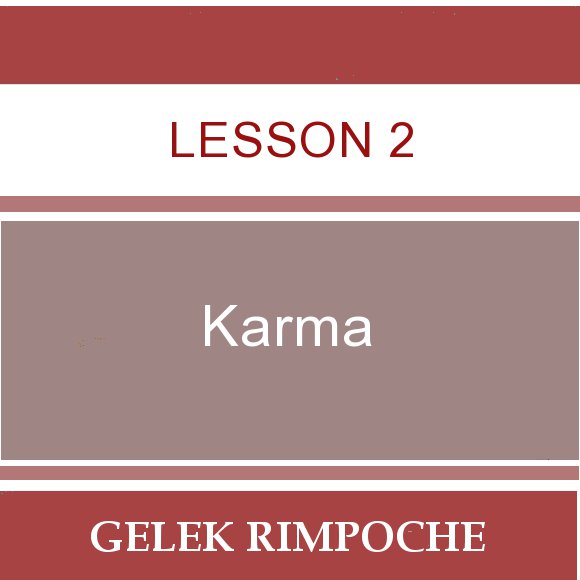
Karma Lesson 2
Lesson Number 2 of 14
The characteristics of karma are that it is definite, and that whatever karma we create, we will meet with its results. Our actions and our deeds are our own responsibility. In this lesson, Rimpoche also introduces the teaching that negative karma can be purified, and positive karma is subject to destruction, particularly by anger.
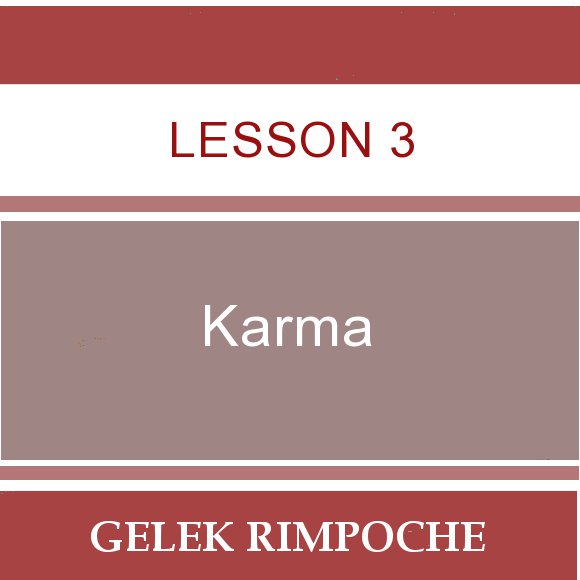
Karma Lesson 3
Lesson Number 3 of 14
The four main principles of karma are: karma is definite, karma is fast-growing, one will experience the results of karma if one has created the cause, whether negative or positive, and one will not experience karmic results if one has not created the cause. In this lesson, Gelek Rimpoche discusses the principle that karma is fast growing. Here he states that karmic causes and effects move more quickly in contemporary times than in times past.
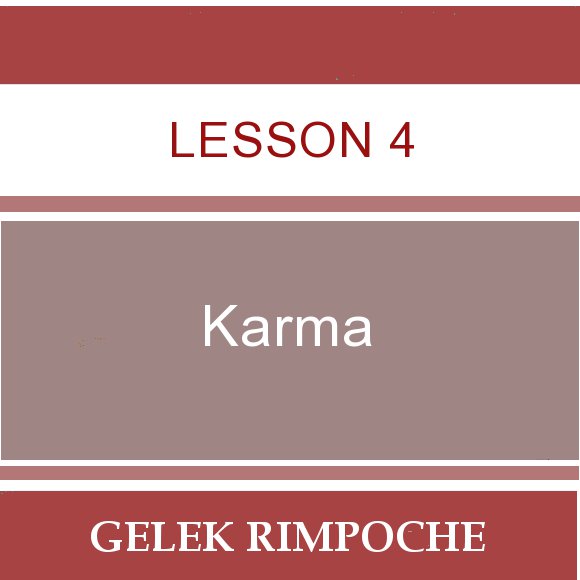
Karma Lesson 4
Lesson Number 4 of 14
Within the concept reincarnation, our karma does not end at our death, but continues into our future lives. Therefore, we must develop a clear awareness of our actions now. Gelek Rimpoche emphasizes in this lesson that even the tiniest karma, the effect of one seemingly small action, can create a strong result. Whether through our profession or during our casual activities, we are encouraged to think about what we do.
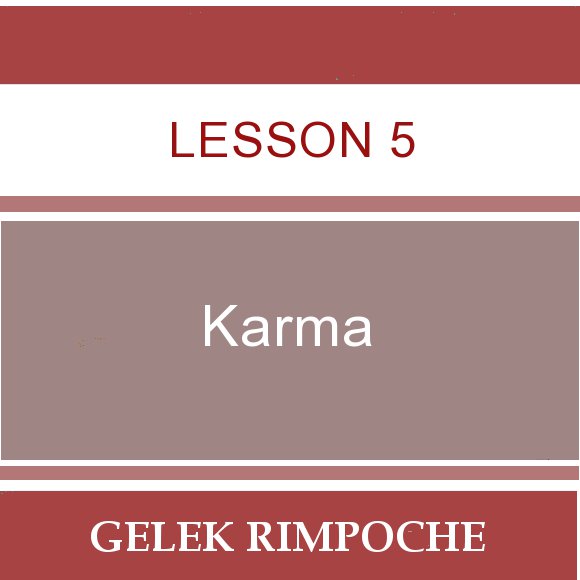
Karma Lesson 5
Lesson Number 5 of 14
In this lesson Gelek Rimpoche focuses on when we will experience a karmic result. He says that we will, without a doubt, experience the effects of our actions, positive or negative. We will not, however, experience a karmic result if we have not created the karmic cause.
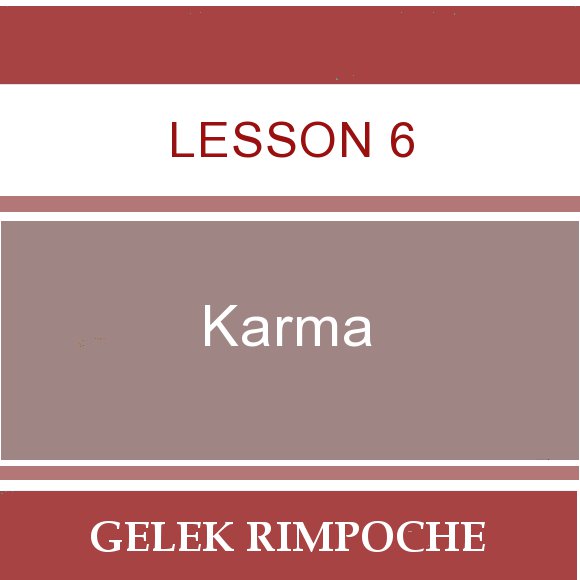
Karma Lesson 6
Lesson Number 6 of 14
Karma is deeply connected with the mind, so watching the mind and training the mind is extremely important in how karma is created. Gelek Rimpoche in this lesson says it is important to protect our mind. With every thought we act on, karma begins to function, and the result will be experienced. Positive karma is what gives us a positive life. Rimpoche also points out that karma depends on proper conditions to come to fruition.

Karma Lesson 7
Lesson Number 7 of 14
According to Buddha suffering arises from non-virtuous actions, and happiness arises from virtuous actions. Our lives are truly our own responsibility. How do we embrace this power and shape a peaceful experience? In this lesson, Gelek Rimpoche emphasizes that we must bring an understanding of the karmic principles into an awareness of self-responsibility. This awareness demands effort and a positive motivation.

Karma Lesson 8
Lesson Number 8 of 14
In this lesson, Gelek Rimpoche expands our understanding of karma and presents a path to develop positive karma. When we bring positive motivation, great compassion and the influence of wisdom into our awareness, then we bring the The Three Principles of the Path into our daily activities. Like a cloth made of cotton, Rimpoche says, every karma we create is then produced by the material of these principles.

Karma Lesson 9
Lesson Number 9 of 14
In this lesson, Gelek Rimpoche discusses the relationship between positive and negative karma, and how one effects the other. Our strongest ally is our own awareness. Rimpoche explains how mental attitudes such as anger and motivation influence karma, and advises us to develop awareness without the burdens of denial or blame.
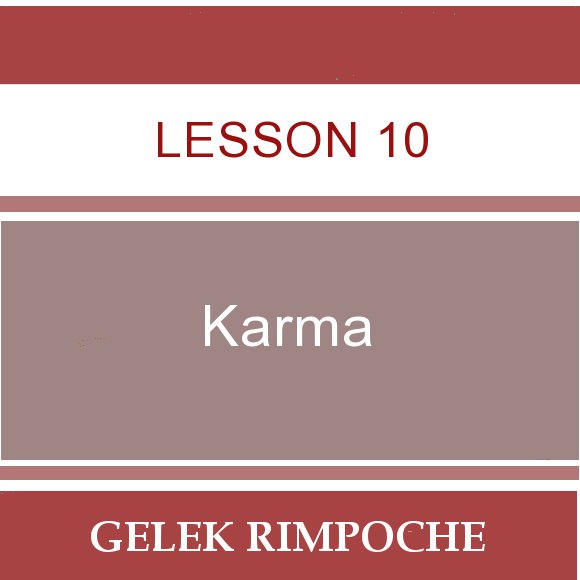
Karma Lesson 10
Lesson Number 10 of 14
If karma is definite, how can negative karma destroy positive karma, and how can positive karma purify negative karma? In this lesson Gelek Rimpoche explains that this manageable quality of karma comes about because karma is impermanent. It depends on conditions to come to fruition. Rimpoche calls it “dependent arising.” This ability to purify negativity, and to strengthen our positive karma creates a path for us, and supports our growth toward awareness and personal
responsibility.
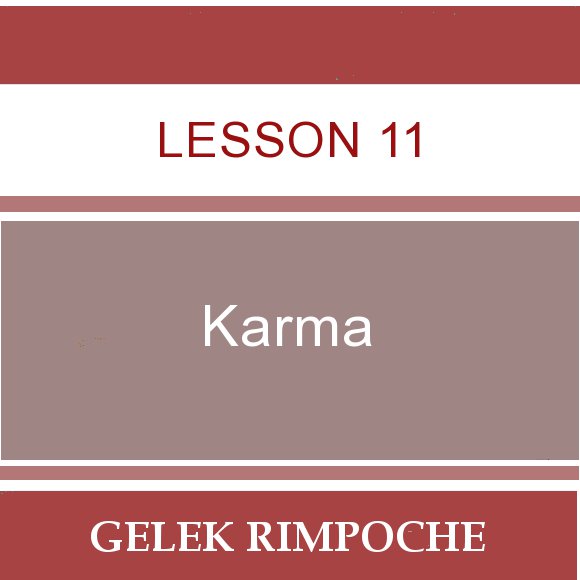
Karma Lesson 11
Lesson Number 11 of 14
In this lesson Gelek Rimpoche explains that purification practices reduce our negativity, and mindful motivation can transform every activity into spiritual development. Rimpoche begins a discussion regarding the karma of prosperity and states that generosity is the cause for prosperity.
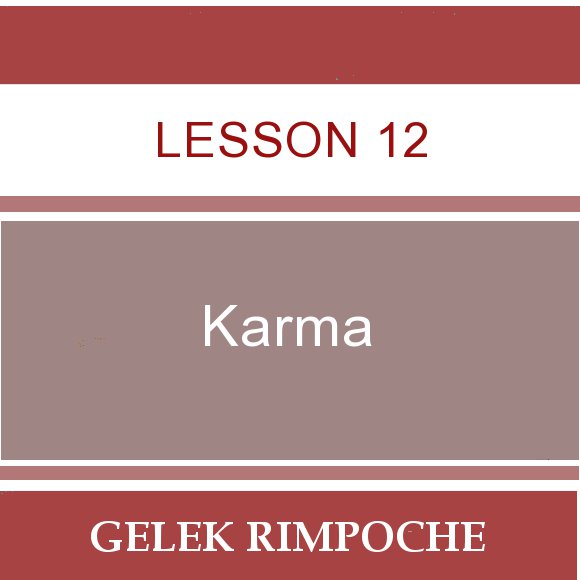
Karma Lesson 12
Lesson Number 12 of 14
Understanding the concepts of karma paves the way for us to minimize our negativities and maximize our happiness. In this lesson, Gelek Rimpoche explains that the prosperity we earn through our work is ours to enjoy. We do not receive any more than is karmically possible, and to reject it is to reject our own karma. On the other hand if we don’t work, we become lazy, and laziness is one of the worst negativities we can develop.
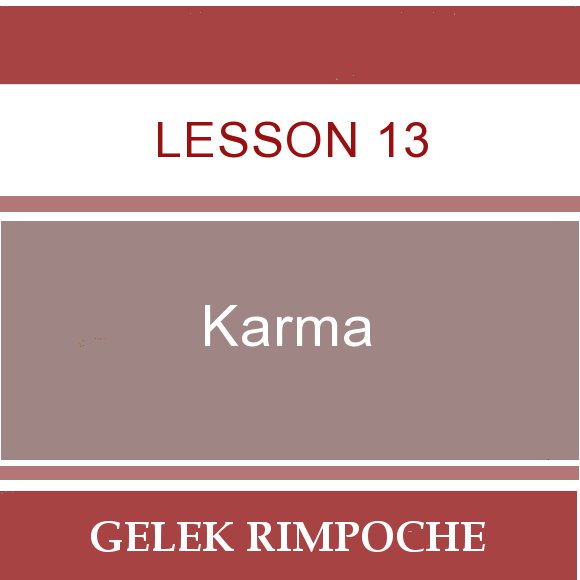
Karma Lesson 13
Lesson Number 13 of 14
Gelek Rimpoche in this lesson takes questions and discusses spiritual practice, difficulties with one’s practice and how to deal with everyday life.
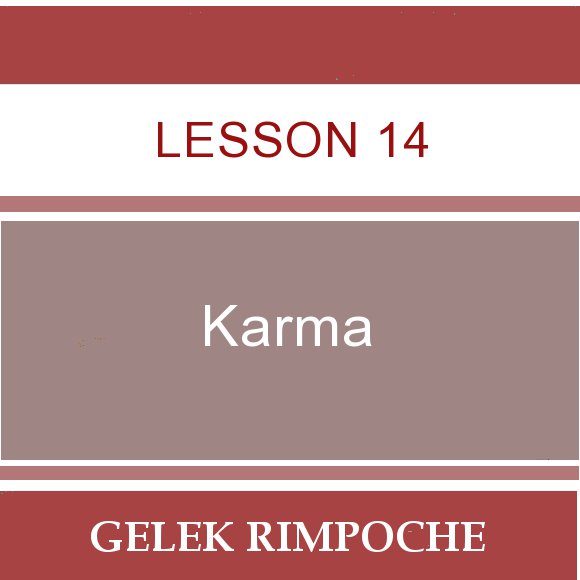
Karma Lesson 14
Lesson Number 14 of 14
Gelek Rimpoche continues taking questions with a focus on bringing our practice into our daily lives. The full idea of practice is to steep our lives, our minds and our habitual patterns in the positive energy of spiritual practice. When we soak our thoughts and attitudes in universal compassion and love, then every action that is not negative by nature becomes a part of the practice.

